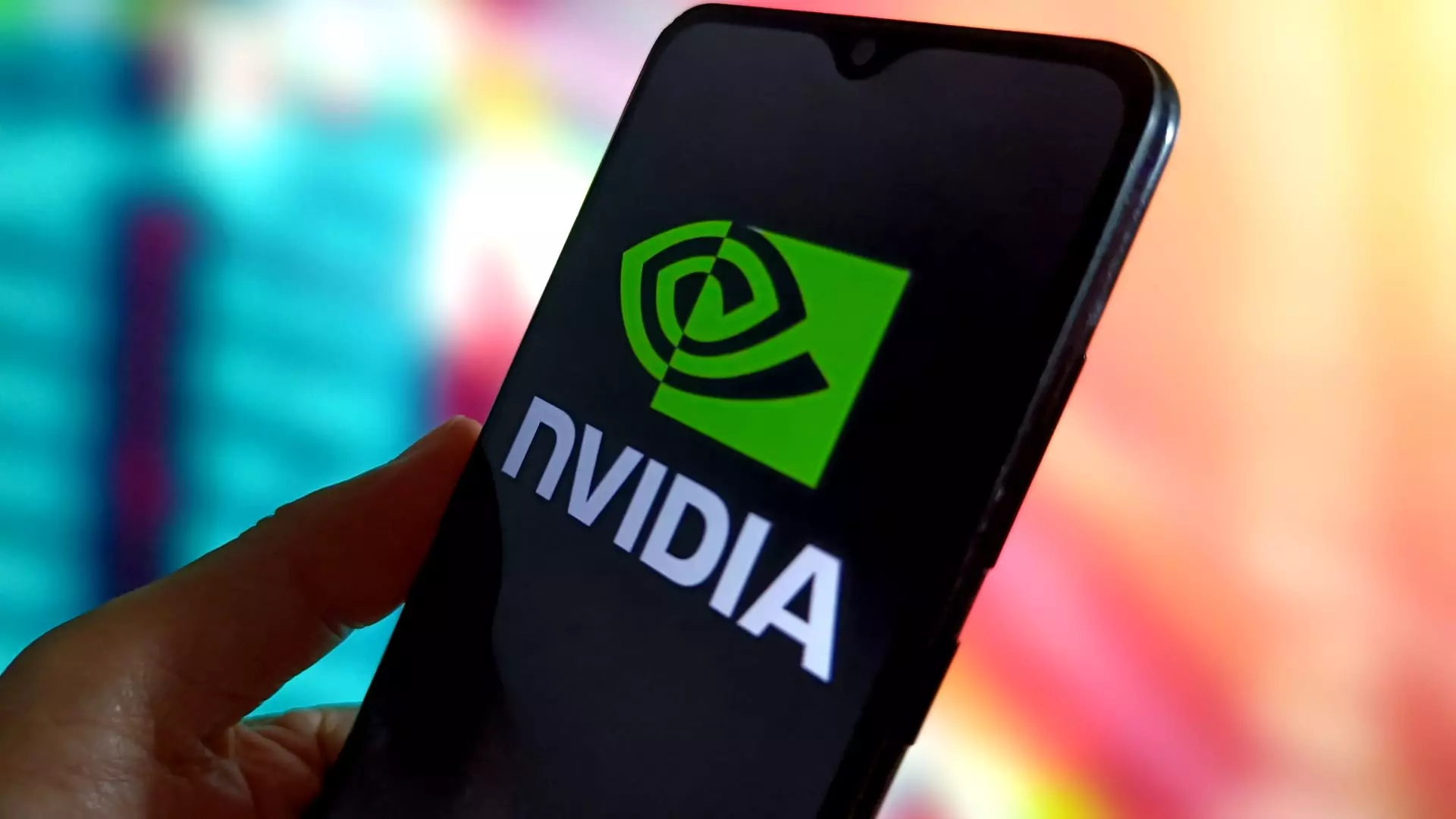On a tumultuous Monday, retail investors displayed remarkable support for Nvidia, a leading chipmaker, as they collectively invested over $562 million in the company’s stock. This aggressive buying spree came despite a staggering market decline that led to the loss of approximately $600 billion in Nvidia’s market value, primarily triggered by the introduction of a competitive AI model from a Chinese startup, DeepSeek. The sharp contrast between retail investors’ confidence and the panic among institutional investors, who engaged in significant sell-offs, serves as a telling example of the shifting dynamics within the stock market, particularly within the tech sector.
This situation is reminiscent of earlier market events, particularly during the pandemic when retail traders rallied around meme stocks, showcasing their ability to challenge traditional market behaviors. On this occasion, retail investors demonstrated their conviction despite Nvidia experiencing its most substantial one-day decline—approximately 17%—since March 2020, when the Covid pandemic began affecting global economies. The pronounced resilience of individual traders highlights a crucial shift in market psychology, as they remain undeterred by fluctuations in stock prices, focusing instead on long-term potential.
The AI Challenge from DeepSeek
The backdrop for this market activity was the news surrounding DeepSeek, which claimed that its AI model outperformed existing benchmarks set by U.S. competitors, including OpenAI, but at a lower cost and with significantly reduced training time. Such advancements prompted broad concerns about the competitiveness of U.S. technology firms in the rapidly evolving AI landscape. The announcement coincided with President Donald Trump’s unveiling of a multi-billion dollar AI initiative, ‘Stargate’, creating a paradox where U.S. investment strategies are being challenged by international innovation.
The AI advancements heralded by DeepSeek evoke historical parallels to the “Sputnik moment” of the late 1950s, a time when U.S. dominance in space technology was overtaken by Soviet advances. In the same vein, DeepSeek’s entrance into the fray raises discussions about whether the U.S. will maintain its leadership in artificial intelligence amidst a rapidly diversifying global tech environment.
Data from Vanda Research reveals a notable discrepancy between retail and institutional investors as the former ramped up their purchases of Nvidia shares while institutions were shedding them. This not only underscores the divergent strategies between these two groups but also illuminates the shifting influence of retail investors within the market. For instance, Nvidia emerged as the most popular stock among everyday investors in 2024, surpassing traditional favorites such as the SPDR S&P 500 ETF Trust (SPY).
The current trading landscape has changed significantly since past surges in retail activity. Whereas earlier spikes in retail buying power could swing the stock prices of small-cap stocks like GameStop and AMC, Nvidia’s substantial market capitalization—hovering around $3 trillion—is a far larger beast, making it nearly impossible for retail investors to manipulate its price to the same degree. Yet, the psychological impact remains potent; retail investors are actively communicating, strategizing, and supporting one another through platforms like Reddit’s WallStreetBets.
The surge in discussions surrounding Nvidia on WallStreetBets—marked by a dramatic 175% increase in mentions despite the downturn—illustrates not only the stock’s volatility but also its cultural resonance among retail investors. Users on platforms like Reddit are finding innovative ways to express their allegiances and strategies, creating community-based momentum that reinforces their market positions. For example, one user shared their Nvidia holdings with the title “in Huang we trust,” an empowering statement referencing the company’s co-founder and CEO, Jensen Huang, further blurring the lines between personal investment and community storytelling.
In essence, the ongoing events surrounding Nvidia paint a complex but intriguing picture of modern investing, characterized by the polarization of retail versus institutional investor behavior, the excitement of emerging AI technologies, and the potential for a more democratized stock market landscape driven by individual investors. As the narrative unfolds, it remains to be seen how these factors will shape the future trajectory of not only Nvidia but the technology sector as a whole, which is increasingly vulnerable to both innovation and global competition.

